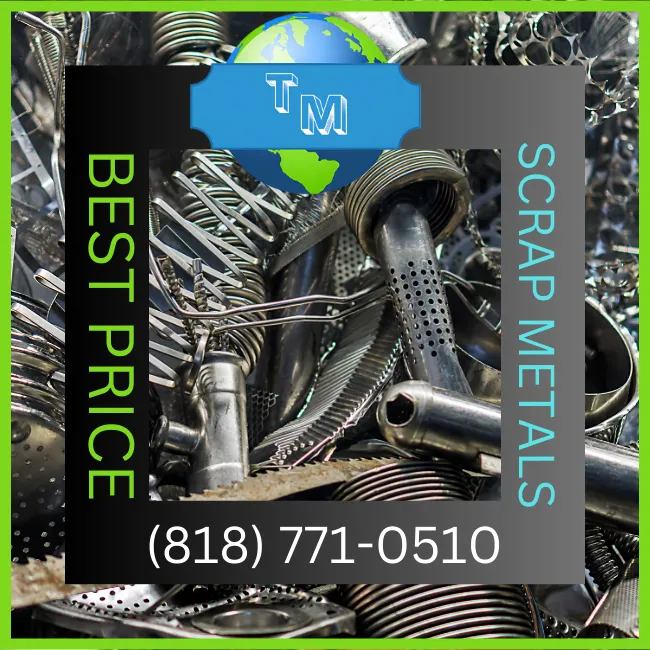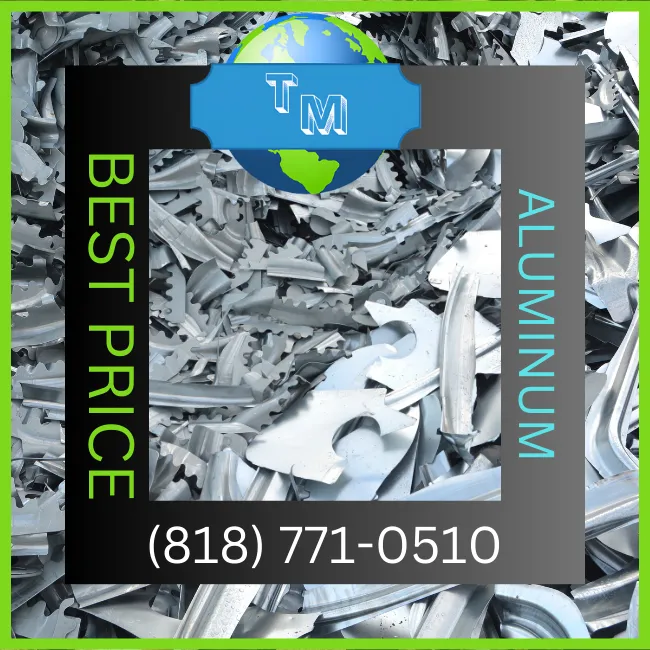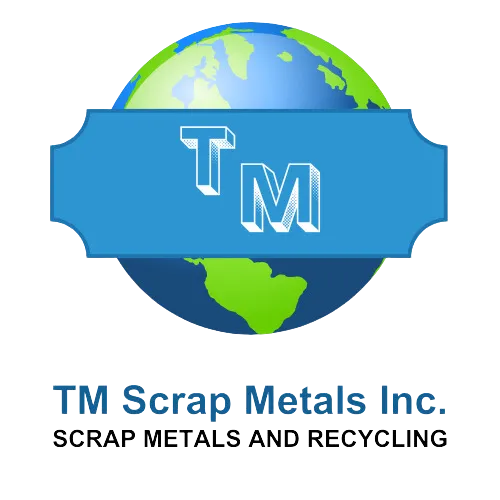Sponsored





Brass Recycling in Sun Valley
Trusted Local Centers For Fast, Fair Brass Recycling Services
Looking to recycle brass in Sun Valley? From fixtures to fittings, local recyclers offer competitive prices and quick turnaround times for all types of brass scrap. These professionals provide environmentally responsible solutions and personalized service for both residential and commercial customers. Browse Sun Valley brass recycling providers and get started today!
Brass Recycling in Sun Valley: Hire a Professional Brass Recycling Service
Protecting the Environment and Maximizing Value with Expert Brass Recycling
The Importance of Brass Recycling in Sun Valley
Brass recycling in Sun Valley is a key aspect of metal waste management and sustainability. As an alloy primarily made of copper and zinc, brass is used in a wide range of applications, from plumbing fixtures and musical instruments to decorative hardware. Recycling brass conserves valuable resources, reduces landfill waste, and minimizes the environmental impact of raw material extraction.
With Sun Valley's ongoing growth and industrial activity, brass waste has become increasingly common. A professional recycling service ensures that this material is collected, sorted, and processed properly, allowing it to re-enter the production cycle efficiently and sustainably.
Why Hire a Professional Brass Recycling Service
Hiring a professional brass recycling service in Sun Valley brings a number of important benefits. These services have the equipment and expertise to identify different types of brass, determine their value, and separate them from other metals for effective processing.
Professional recyclers also prioritize safety and regulatory compliance. Handling brass, especially in mixed or contaminated scrap, can pose risks that professionals are trained to manage. They follow environmental guidelines and ensure that all processes adhere to local laws.
Moreover, expert recyclers can offer competitive pricing and quick turnaround for businesses and homeowners. Their understanding of market trends means you’ll get a fair return on your recyclable brass while also contributing to eco-friendly practices.
Choosing a Trusted Brass Recycling Provider in Sun Valley
To choose the best brass recycling service in Sun Valley, seek out companies with solid reputations, transparent practices, and local knowledge. Reliable providers will clearly communicate pricing, offer professional evaluations, and deliver responsive service.
Working with a local brass recycler not only improves convenience but also enhances your impact on community sustainability. These businesses are often aligned with Sun Valley’s environmental goals and are well-versed in the area's recycling protocols.
In conclusion, a professional brass recycling service is a valuable partner in managing waste responsibly and efficiently. It’s a step toward a greener future for Sun Valley and a smart financial decision for individuals and businesses alike.
TM Scrap Metals, Inc
Recycling Center

Google: 4.8 stars
Ferrous Metals Recycling, Non-Ferrous Metals Recycling
(818) 771-0510
11092 Tuxford St, Sun Valley, CA 91352
Website: www.tmscrapmetals.com




Crown Recycling Services
Google: 4.0 stars
Services: Construction & demolition recycling, wood and yard waste recycling
📞 (818) 768-4214
📍 9189 De Garmo Ave, Sun Valley, CA 91352
🌐 Website not listed
Ecology Auto Parts, Inc.
Google: 4.2 stars
Services: Auto parts recycling, metal recycling, tire recycling
📞 (818) 767-8336
📍 14036 Balboa Blvd, Sun Valley, CA 91352
SA Recycling
Google: 4.2 stars
Services: Scrap metal recycling, ferrous and non-ferrous metal recycling, electronic waste recycling, metal processing
📞 (818) 504-4140
📍 8250 Tujunga Ave, Sun Valley, CA 91352
Kramar Metals
Google: 4.5 stars
Services: Scrap metal recycling, industrial scrap metal recycling, metal processing, buying and selling of various metals
📞 (818) 767-4303
📍 8821 San Fernando Rd, Sun Valley, CA 91352
Brass Recycling in Sun Valley
Quick cash for clean and mixed brass items.
Recycle your brass at our Sun Valley center and earn today!
People Also Ask
Recycled brass is commonly reused in manufacturing plumbing fixtures, decorative hardware, musical instruments, ammunition casings, and mechanical parts. Its corrosion resistance and aesthetic appeal make it suitable for both functional and ornamental applications. The metal retains its quality through recycling, making it a valuable resource in industries requiring durable and visually appealing materials. Reusing brass helps reduce the need for mining and promotes sustainable manufacturing practices.
Brass recycling conserves natural resources by reducing the demand for raw materials like copper and zinc, which are the primary components of brass. It also requires significantly less energy than producing new brass from virgin ore, resulting in lower greenhouse gas emissions. Recycling helps divert waste from landfills and reduces the environmental impact of mining and metal processing. As a result, brass recycling plays an important role in sustainable industry practices.
Brass scrap is collected from sources such as plumbing materials, machine parts, decorative items, and used ammunition. After collection, the metal is sorted by type and alloy composition. It is then cleaned to remove impurities and melted down in furnaces. The molten brass is cast into shapes like bars or sheets for reuse in manufacturing. This process helps reduce energy use and supports circular economy principles by keeping materials in use for longer.
Common recyclable types of brass include yellow brass (used in plumbing), red brass (containing more copper), and spent brass casings (from ammunition). These varieties differ in color, copper content, and application, but all are recyclable. Identifying and sorting brass by type can affect its market value and the efficiency of the recycling process. Recyclers often provide guidance on how to separate different brass grades for maximum return.
Yes, painted or coated brass can be recycled, although it may require additional processing to remove surface treatments. Coatings are typically removed through chemical or thermal means before the brass is melted down. While recyclable, clean and uncoated brass typically commands higher prices. It's a good idea to consult with local recycling facilities to understand how they handle treated brass and whether any preparation is needed on your part.
Yes, brass is a valuable non-ferrous metal and often brings a good return at recycling centers. Its market value depends on factors like purity, type, and current demand. Clean, sorted brass yields better prices than mixed or contaminated loads. Many recyclers pay by weight, and separating different types of brass can help maximize profit. Regular recycling of brass items, particularly in bulk, can be a steady source of supplemental income for businesses and individuals alike.
Sun Valley, CA: The Heart of Scrap Metal Recycling
The History and Evolution of Sun Valley
Sun Valley has a rich history that dates back to the early 20th century. Originally an agricultural area, it evolved into a hub for industrial activities as Los Angeles expanded. The post-World War II boom brought a surge of manufacturing and industrial businesses to Sun Valley, laying the groundwork for the community’s future as a center for scrap metal recycling.
Today, Sun Valley is a bustling urban area with a mix of residential, commercial, and industrial zones. Its industrial areas are home to numerous scrap metal recycling facilities, making it a go-to destination for businesses and individuals looking to recycle their metal waste.
The Importance of Scrap Metal Recycling in Sun Valley
Scrap metal recycling is not just a business in Sun Valley—it’s an essential part of the local economy and the broader effort to promote environmental sustainability. The recycling of scrap metal reduces the need for mining new metals, conserves natural resources, and lowers greenhouse gas emissions. Given the global demand for metals, recycling also helps stabilize prices and supply.
In Sun Valley, the scrap metal industry provides jobs, supports local businesses, and plays a crucial role in waste management. The area’s recycling facilities process thousands of tons of metal each year, turning what would otherwise be waste into valuable resources. This industry’s success in Sun Valley has also fostered a community that understands and values the importance of recycling.
Types of Scrap Metals Commonly Recycled in Sun Valley
- Aluminum: Widely used in packaging, transportation, and construction, aluminum is one of the most recycled metals in Sun Valley. It’s lightweight, corrosion-resistant, and can be recycled indefinitely without losing its properties.
- Copper: Known for its excellent conductivity, copper is highly sought after in the scrap metal industry. It’s commonly found in electrical wiring, plumbing, and electronics.
- Steel: A primary material in construction and manufacturing, steel is the most recycled material in the world. Sun Valley’s facilities process vast amounts of steel, from old vehicles to construction debris.
- Brass: This alloy of copper and zinc is commonly found in plumbing fixtures, radiators, and musical instruments. Brass is valued for its durability and resistance to corrosion.
- Lead: Often used in batteries and radiation shielding, lead is a toxic metal that must be recycled responsibly. Sun Valley’s recycling centers ensure that lead is handled and processed safely.
- Stainless Steel: This corrosion-resistant metal is used in a variety of applications, from kitchen appliances to medical instruments. It’s another common material processed in Sun Valley’s recycling facilities.
The Process of Scrap Metal Recycling in Sun Valley
The process of recycling scrap metal in Sun Valley is both efficient and environmentally friendly. It typically involves several key steps:
- Collection: Scrap metal is collected from various sources, including households, businesses, and construction sites. Many recycling centers in Sun Valley offer pick-up services, making it easy for residents and businesses to recycle their metal waste.
- Sorting: Once the metal arrives at the recycling facility, it is sorted into different categories based on type and quality. This step is crucial for ensuring that the metal is processed correctly and efficiently.
- Processing: After sorting, the metal is processed to remove any non-metallic materials, such as plastic, rubber, or wood. This often involves shredding the metal into smaller pieces to make it easier to handle.
- Melting: The shredded metal is then melted down in large furnaces. The melting process is carefully controlled to ensure that the metal is pure and free of contaminants.
- Purification: In some cases, the melted metal is purified to remove any remaining impurities. This step is especially important for metals that will be used in sensitive applications, such as electronics or medical equipment.
- Solidification: Once purified, the molten metal is poured into molds to create ingots, sheets, or other forms that can be used in manufacturing. These recycled metals are then sold to manufacturers, who use them to create new products.
Environmental Impact of Scrap Metal Recycling
Recycling scrap metal in Sun Valley has a significant positive impact on the environment. By recycling metals, the need for mining raw materials is reduced, which in turn decreases the destruction of natural habitats, lowers energy consumption, and minimizes pollution. The recycling process itself uses less energy compared to producing new metals from ore, resulting in a smaller carbon footprint.
Additionally, recycling scrap metals helps reduce the amount of waste sent to landfills. Metals take a long time to decompose, and by recycling them, Sun Valley helps reduce the environmental strain of waste management.
Economic Benefits of Scrap Metal Recycling
The scrap metal recycling industry in Sun Valley is not just environmentally beneficial—it also brings substantial economic advantages. The industry creates jobs at various levels, from collection and processing to sales and management. This contributes to the local economy by providing employment opportunities and stimulating business growth.
Moreover, recycling metals allows businesses to save on raw material costs. Recycled metals are often cheaper than newly mined ones, which helps manufacturers reduce production costs. This cost-saving advantage can be passed on to consumers, making products more affordable.
Challenges Faced by the Scrap Metal Industry
Despite its benefits, the scrap metal industry in Sun Valley faces several challenges. One of the main issues is the fluctuation in metal prices, which can affect the profitability of recycling operations. Additionally, the industry must deal with the improper disposal of non-recyclable materials, which can contaminate the recycling process and increase operational costs.
Another challenge is the need for continuous investment in technology and infrastructure. As environmental regulations become stricter, recycling facilities must upgrade their equipment and processes to meet these standards. This requires significant financial investment, which can be a burden for smaller businesses.
The Future of Scrap Metal Recycling in Sun Valley
Looking ahead, the future of scrap metal recycling in Sun Valley appears promising. As awareness of environmental issues continues to grow, so does the demand for sustainable practices like recycling. Technological advancements are also expected to play a key role in improving the efficiency and effectiveness of recycling processes.
In addition, the increasing global demand for metals, driven by industries such as construction, automotive, and electronics, will likely boost the scrap metal industry. Sun Valley, with its established recycling infrastructure, is well-positioned to meet this demand and continue its legacy as a leader in scrap metal recycling.
Conclusion
Sun Valley, CA, has established itself as a vital center for scrap metal recycling, contributing significantly to environmental sustainability and the local economy. Despite the challenges it faces, the industry’s future looks bright, with ongoing advancements in technology and an increasing emphasis on recycling. For residents and businesses alike, Sun Valley remains a beacon of responsible waste management and resource conservation.
References: Wikipedia


